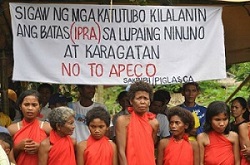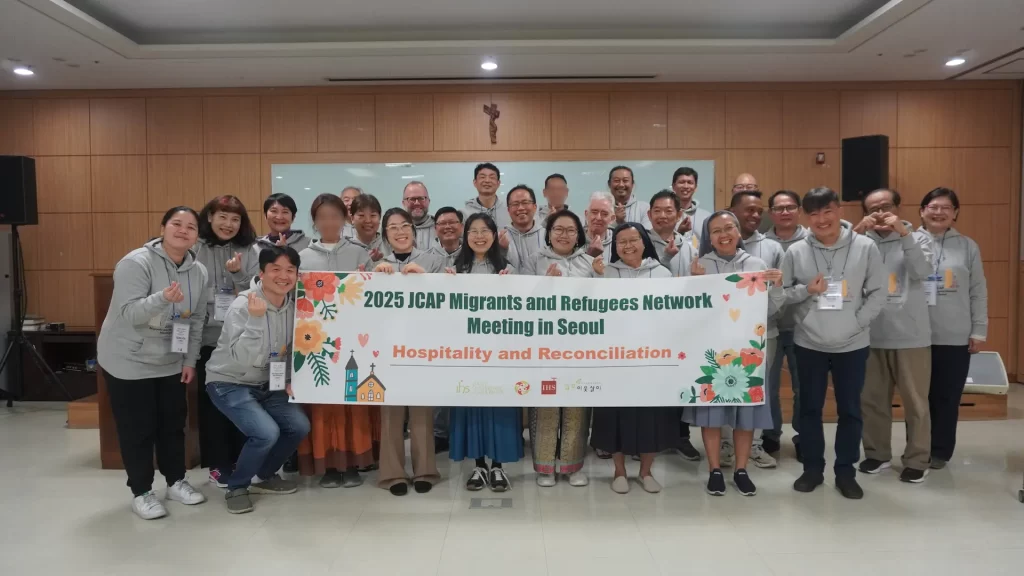When the Philippine’s newest freeport was established seven years ago in Casiguran, Aurora province, a large-scale protest among the affected residents and various groups erupted. The Aurora Pacific Economic Zone and Freeport (APECO) aimed to transform more than 12,000 hectares of Casiguran land into a commercial, industrial, agro-industrial, and tourist hub to usher development throughout the province. However, the project has been accused of violating land laws protecting the rights of rural smallholders, while funnelling billions of taxpayers’ pesos on a mega-project of questionable viability.
Even as the anti-APECO struggle continues, anti-APECO supporters have been working on their alternative vision of socio-economic progress. Since 2010, they have supported appeals of Casiguran townsfolk for inclusive and sustainable development by organizing organic agriculture, microfinance, and disaster rehabilitation ventures in the municipality. One of the initial projects established include Kasiguruhan para sa Casiguran: Back to School Campaign, which primarily addressed the lack of access to quality education of the Casiguran Agta, one of the indigenous tribes in the area.
The Kasiguruhan initiative – headed by the Simbahang Lingkod ng Bayan (SLB), the social justice arm of the Jesuits in the Philippines – tackled the single biggest barrier for education among Casiguran’s indigenous people: their inadequate funds for schooling and supplies. This constraint to Agta education was identified in a series of community-level dialogues which SLB conducted in Casiguran from June 1 to 5, 2014.
One Agta mother said, “We used to get support for education but not anymore. We have to cut one pencil in half for two children.”

As with other basic sectors in Casiguran, access to quality education is urgently needed in order to improve the difficult living conditions of Casiguran’s Agtas who live well below the poverty line. Schooling is especially crucial to enable indigenous communities to better protect themselves from the human rights abuses they have suffered in the past.
“Education is important to us because it empowers us to protect ourselves and makes it more difficult for others to discriminate and take advantage of us,” Agta community leaders told SLB.
Heightened and culturally sensitive education for indigenous people remains a critical part of promoting inclusive development and self-determination for the ethnic groups. While past outsider-driven development projects in Casiguran have mostly resulted in the marginalization of the Agta, the participatory approach of the Kasiguruhan initiative better ensures that the opportunities for upliftment in well-being will be shared equitably among communities in Casiguran – but above all the Agta.
The Kasiguruhan initiative has reaped a surprising show of support for the people of Casiguran and their hopes for development interventions rooted in their actual, everyday needs. With problems more complex than the lack of support in education, SLB recently launched Kasiguruhan sa Casiguran: An Agta Development Fund which evolved from the back-to-school campaign which helped more than 270 Agta children. Now, the Kasiguruhan project has expanded to a larger umbrella campaign that aims not just to aid Agta children in their education needs but also to empower the Agta community members through support in their social welfare and advocacy. This event is also in light of the serious struggles that the Agta communities currently face such as land-grabbing and development aggression.
“While the path to real progress for the poor like Casiguran’s Agtas will be long, it is increasingly clear that working with their agency, their livelihoods, and their capabilities will be the only way that ‘development’ can be made to serve – not marginalize – them,” wrote Xavier Alvaran and Rico La Viña of Task Force Anti-APECO, which is based in the SLB office. [Rappler]






